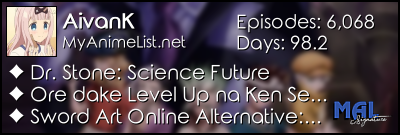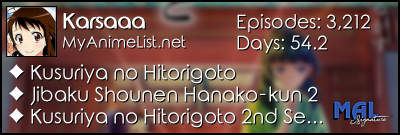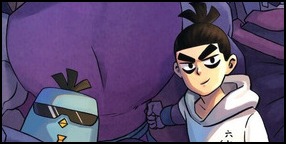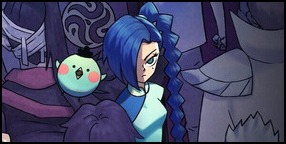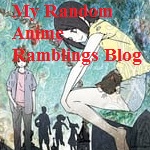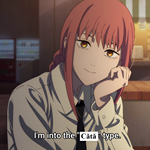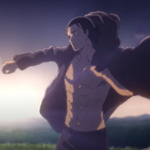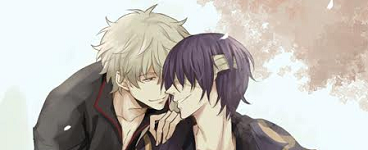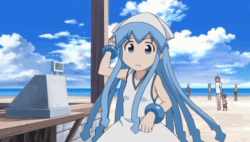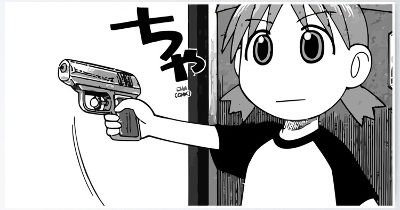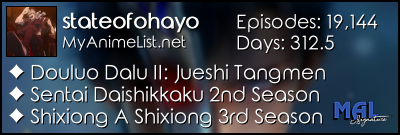siradix said:Noumu said:
If anything it's "anti anarcho capitalist" but that's about it.
I thought it was an authoritarian capitalism system. Capitalism is allowed to exist, but you have a single entity or party that controls the freedom of the citizens. Examples would be Russia and China.
If anything it's communism. Communist countries also had some small stores allowed. At least in the Soviet Union and the rest of Eastern Europe. Not in the total extreme, like Cambodia, where people were killed even for wearing a wristwatch or a pair of glasses, or knowing a foreign language.
A small cabal owns everything in the country, and forces everyone to work for them. No private production of goods and services is allowed, except on a very small scale.
Seems to be what this imaginary world is like. Though by magic, their economy keeps working at a high-tech level. (Perhaps they have more private business than a communist state usually has, then. Or it's just not something the creators think of.)
And of course they'll insert "PROFIT!!!" in the story, always a sign of EVIL in fiction, thanks to the Hollywood bosses making it such.
While we're on the topic, allow me to include some examples of what life in a Soviet state is like:
All prices and wages are set by the cabal, as opposed to the normal process through history where a change in demand leads to a change in prices in the store which leads to a change in orders to the factory, and thereby a change in supply. Without this process, supply doesn't change except for every five years or so when the bureaucracy decides to change it. As opposed to the normal thing in history where shifting demand leads to shifting production pretty much every week.
You'll have coats of one size piling up on the shelves, because no one buys them, while coats of another size are all sold out. Tractors of one kind piling up behind the factory, while engines for another kind of tractor are also piled up behind another factory. Tons of low-grade candy produced in one province because that's what is ordered from above since several years back, while you don't have enough bread and no one except party bosses can afford meat. Plenty of rubber boots using up all the rubber, but not enough rubber for other production. (All of these real Soviet examples.)
There is no reward for innovation: The officer who invented the Kalashnikov died poor. (And he only got the mechanism by interrogating enslaved German technicians. Other Germans went to Spain and continued the production of automatic rifles, which became the basis for the automatic carbines used in e.g. Scandinavian countries today.) Any innovation at a factory is just a hassle for the bosses, who are already struggling with shortages and all kinds of problems. They wouldn't be rewarded if your idea worked, anyway. But they'd be punished if they tried it and it caused trouble. They have their quotas and they stick to them, or they'll be replaced by the Moscow bureaucrats above them.
The Soviet Union didn't even have medicine after a 1920s level, they only had what they imported for France, and only top party members could shop in the stores that had it. Their dentist equipment was also at a 1920s level. They couldn't afford fruit - especially not something fancy like bananas.
Lakes died because they dumped toxins straight in the lakes without filters. (Some visitors who took a bath in the 1990s had poisoned, dizzy fish swimming straight into them without turning away. If you swallowed any of the water you needed to be stomach pumped right away.) The chimneys in Eastern Europe were unfiltered and built very tall so the smoke would blow to West Germany and beyond. The life in Baltic Sea was almost killed off. The forests died. They dumped radioactive waste by the North Pole ice. The air in some Soviet cities was so dirty that they couldn't use it for welding - they had to pump in oxygen from outside the city.
And importantly, no one was allowed to leave, as then everyone would leave.
Mao destroyed China's economy this way. When he died the dissident Deng Xiaoping, exiled to the rural western provinces, was brought back. He filled the government with other dissidents and they introduced a market economy, like China had always had before. He excused this by saying "It doesn't matter if it's a black or white cat as long as it catches mice," so really, it was actually still communism, because communism equaled whatever was good for the country. They would pretend. China survived while the Soviet Union didn't. Vietnam is struggling along, though with a corrupt leadership and ports filled with floating garbage, while North Korea is a basket case that needs food donations from the West. |


